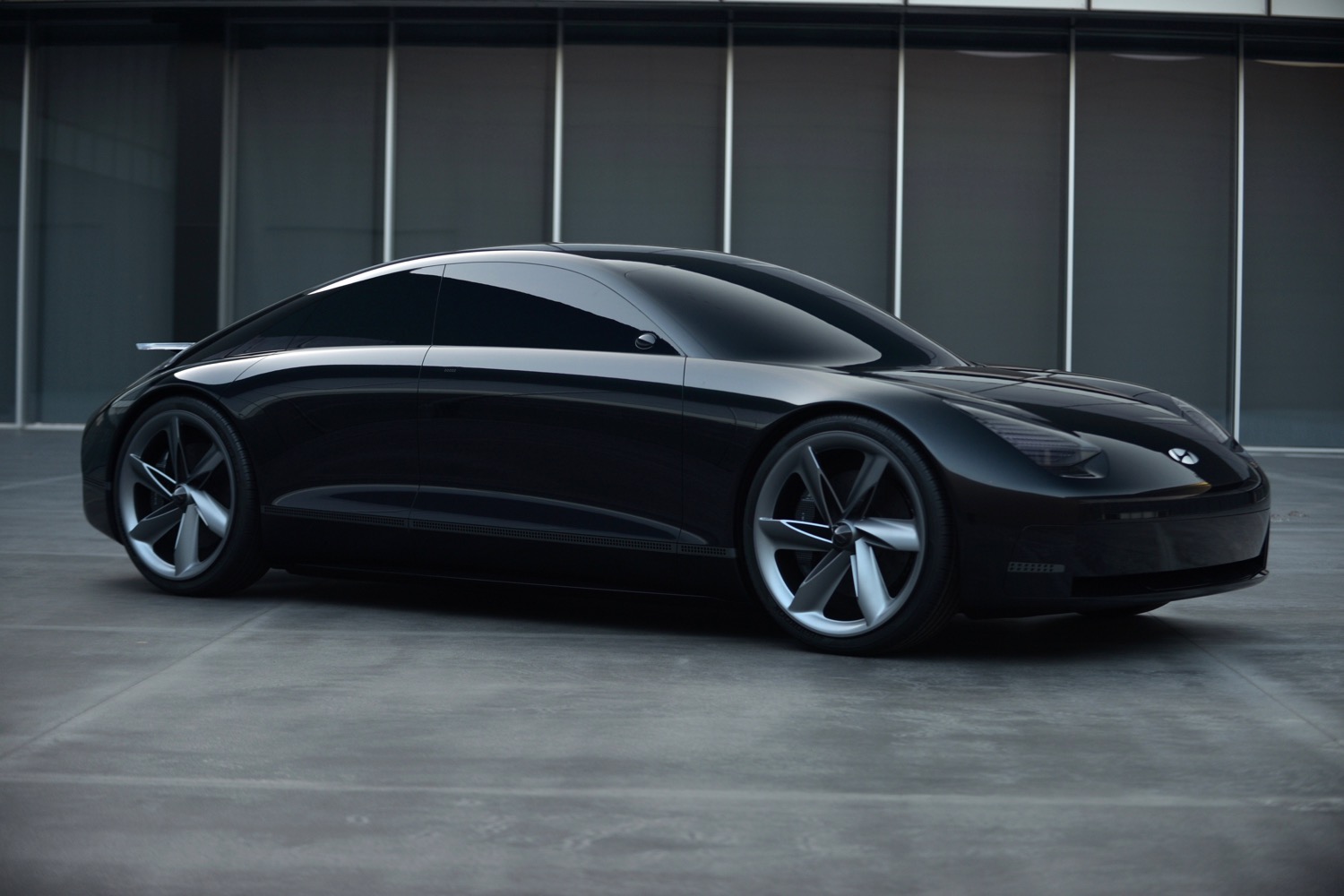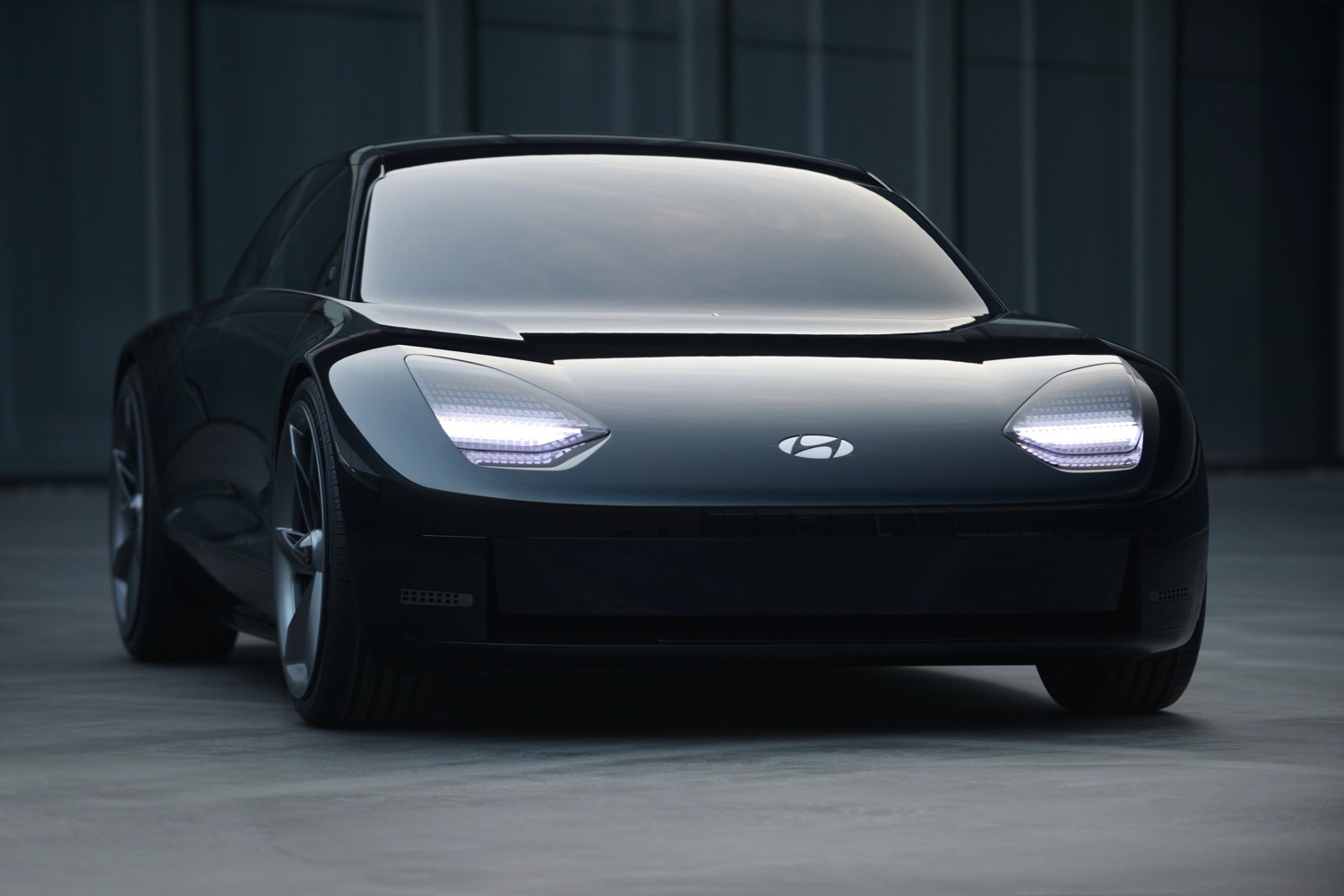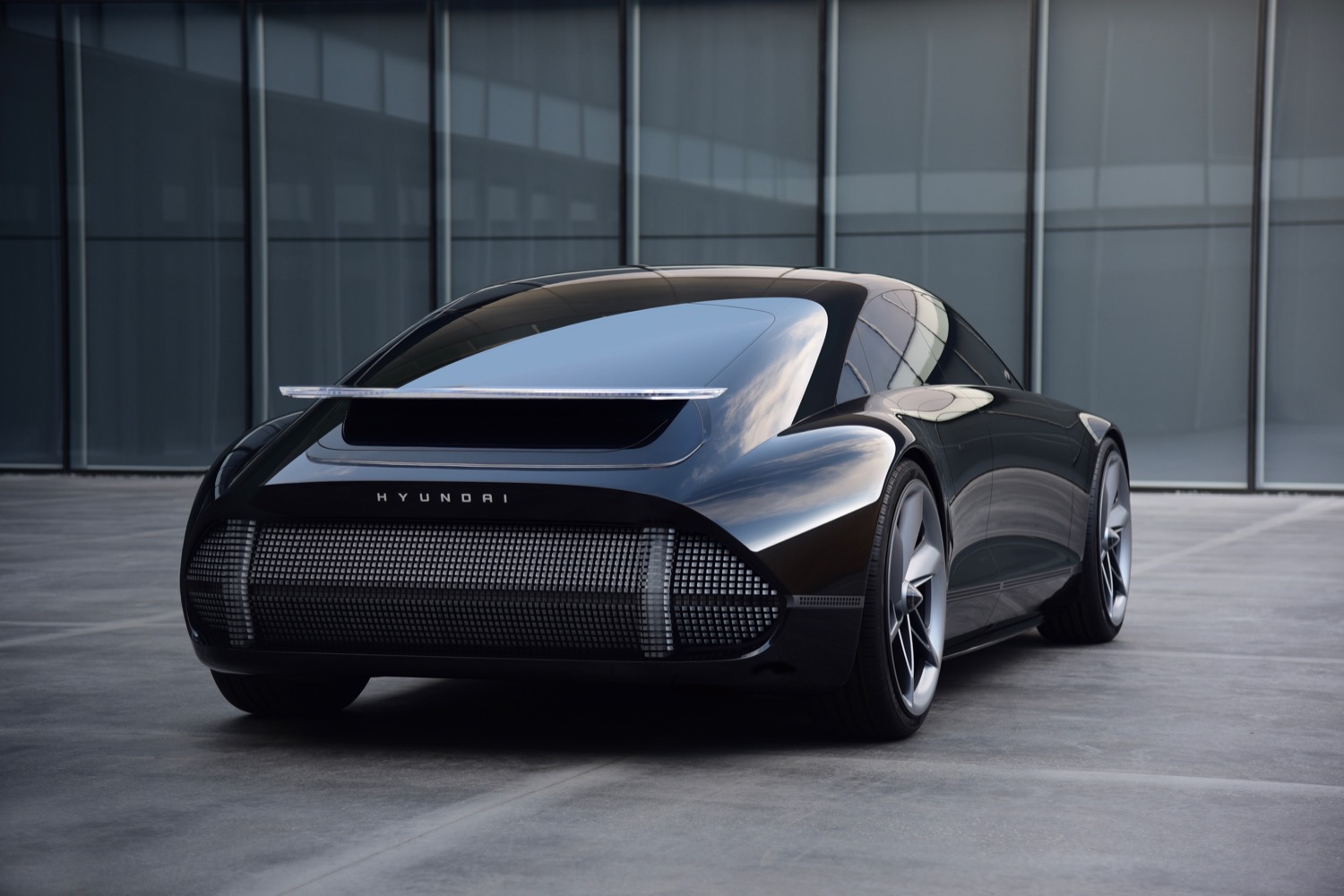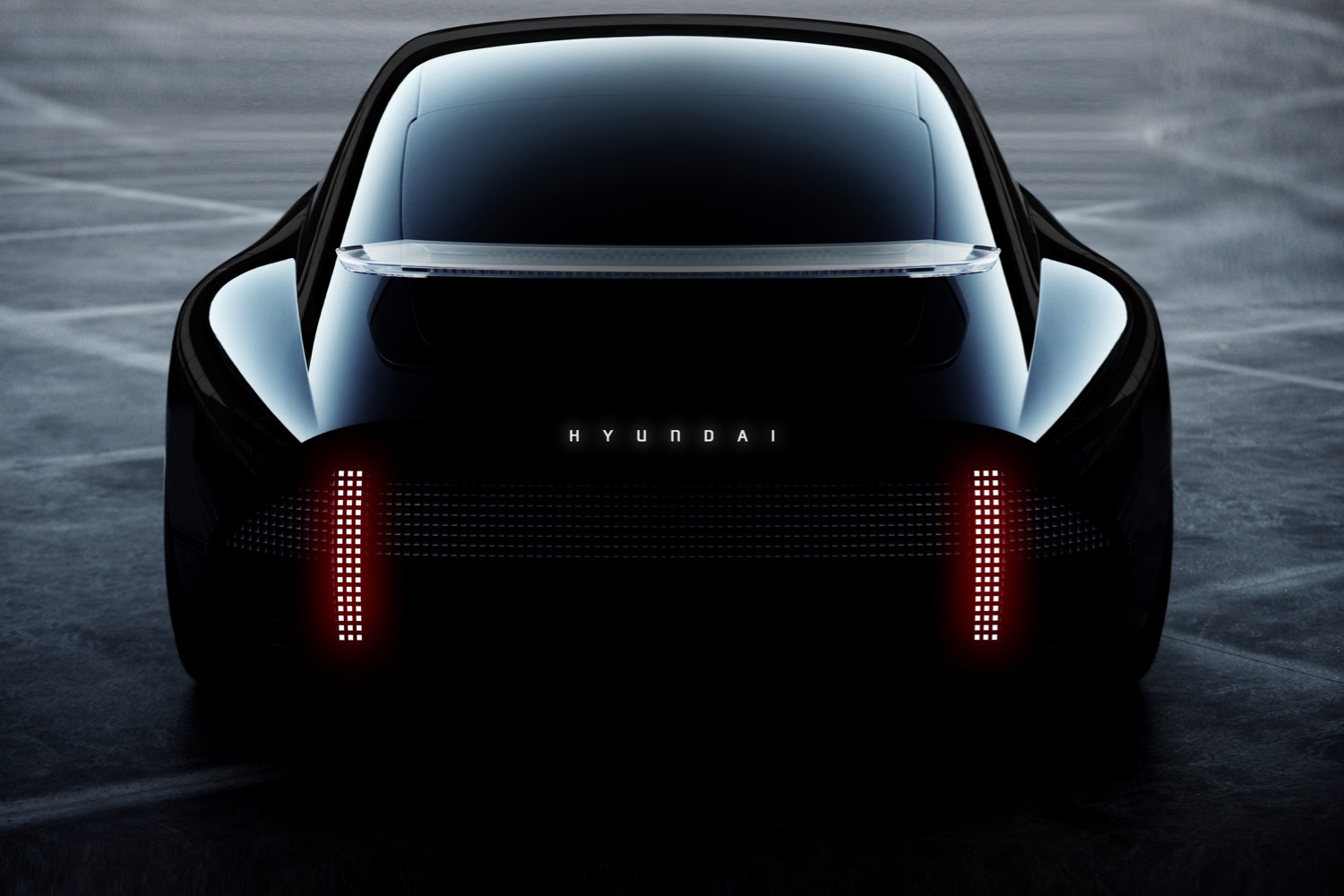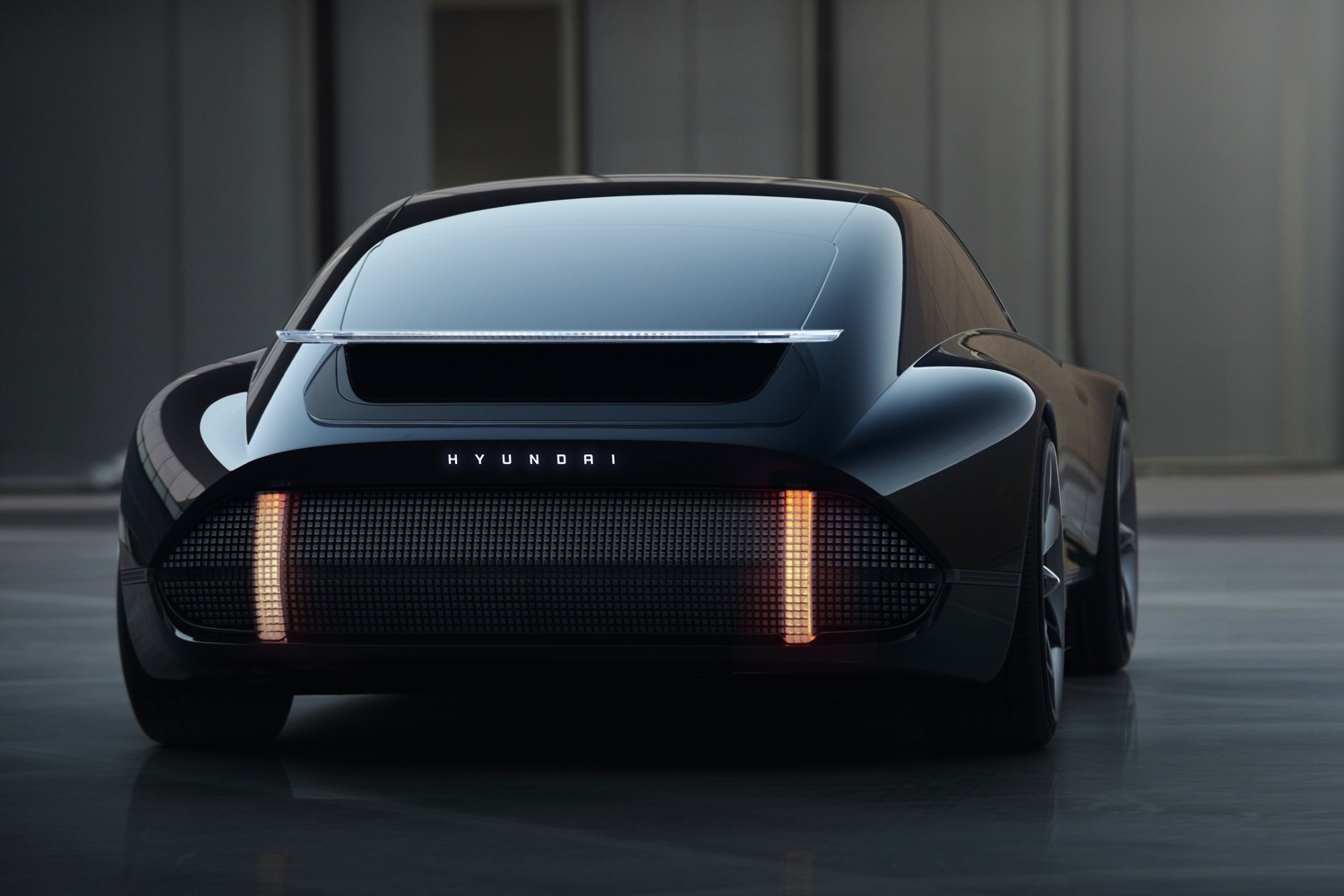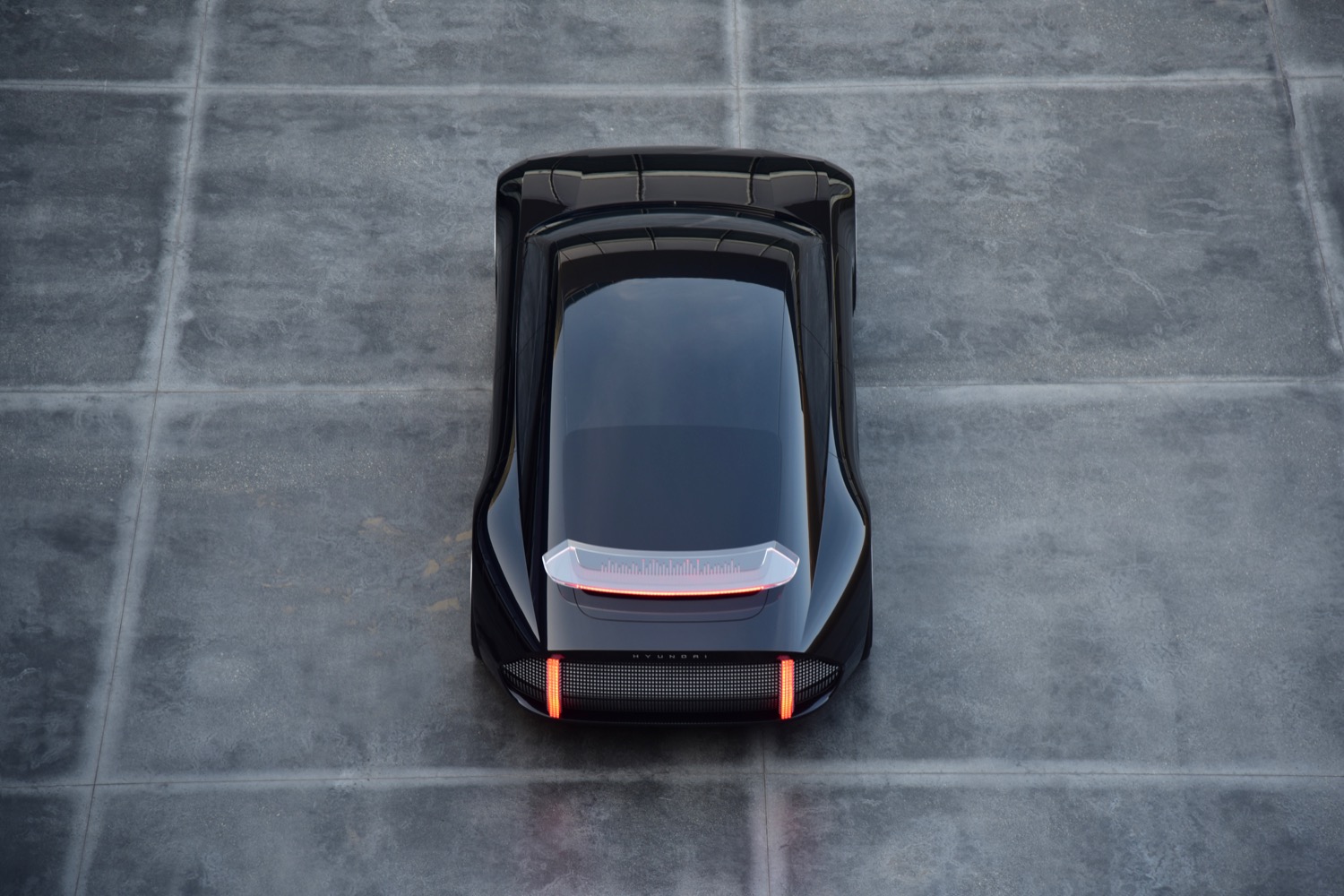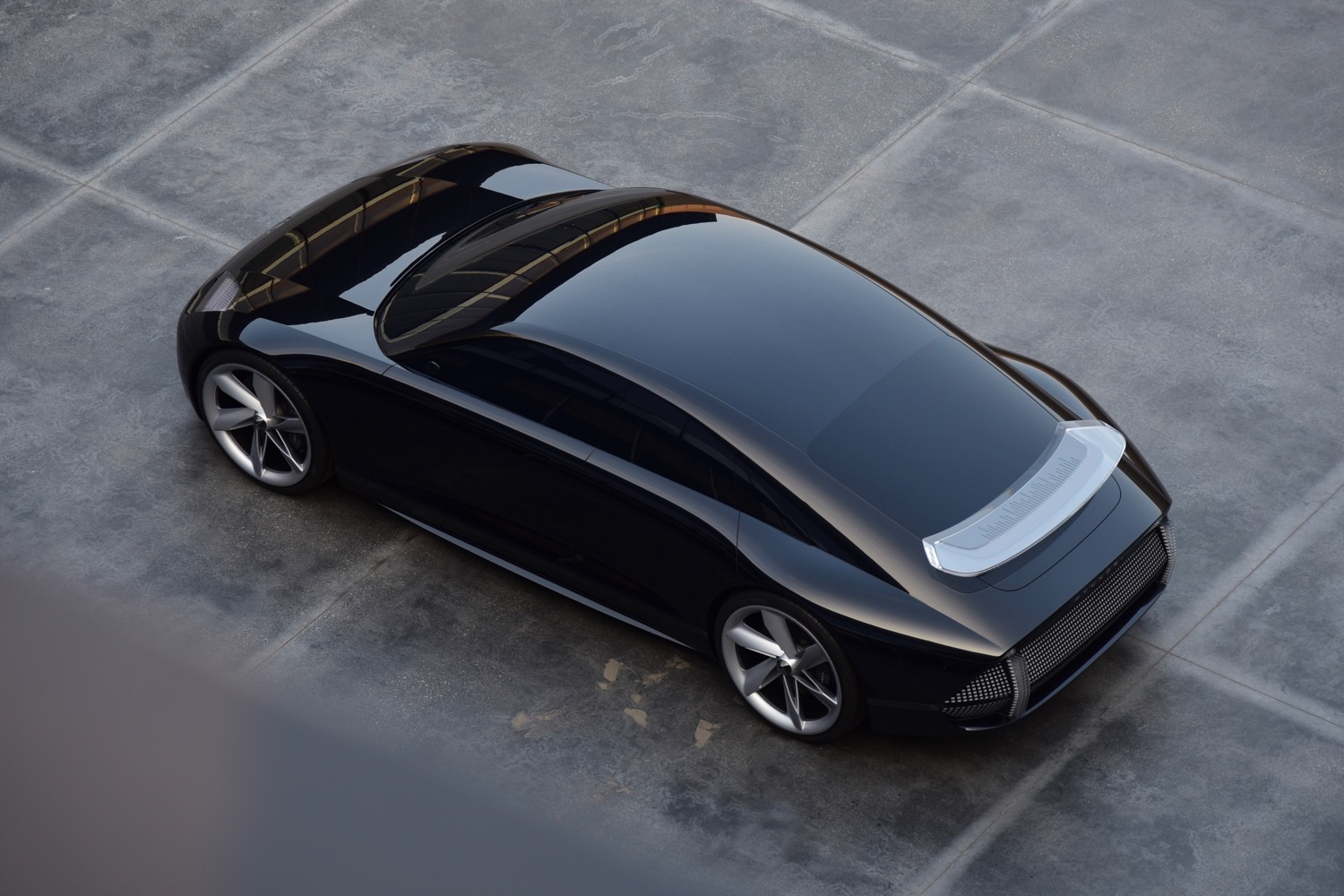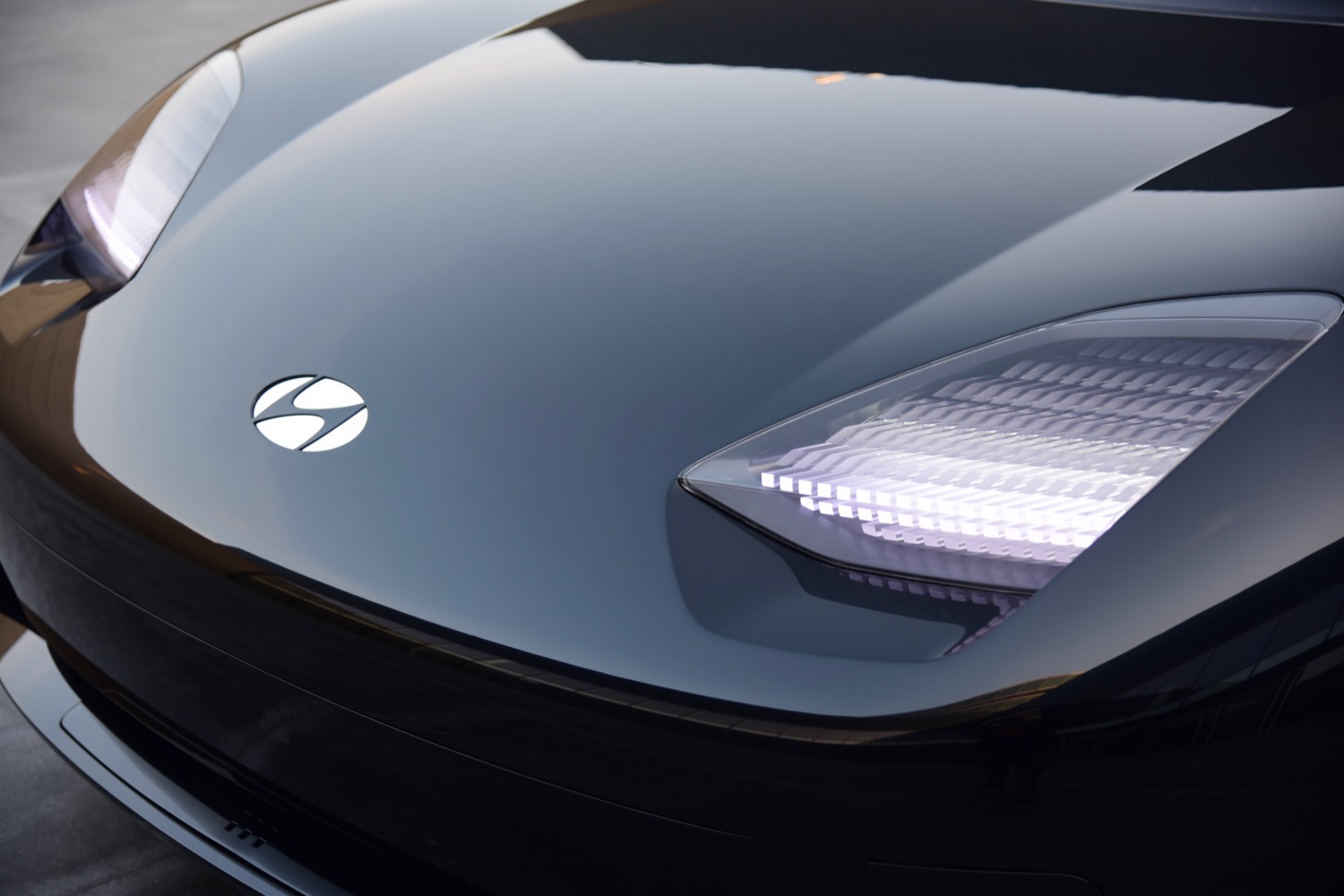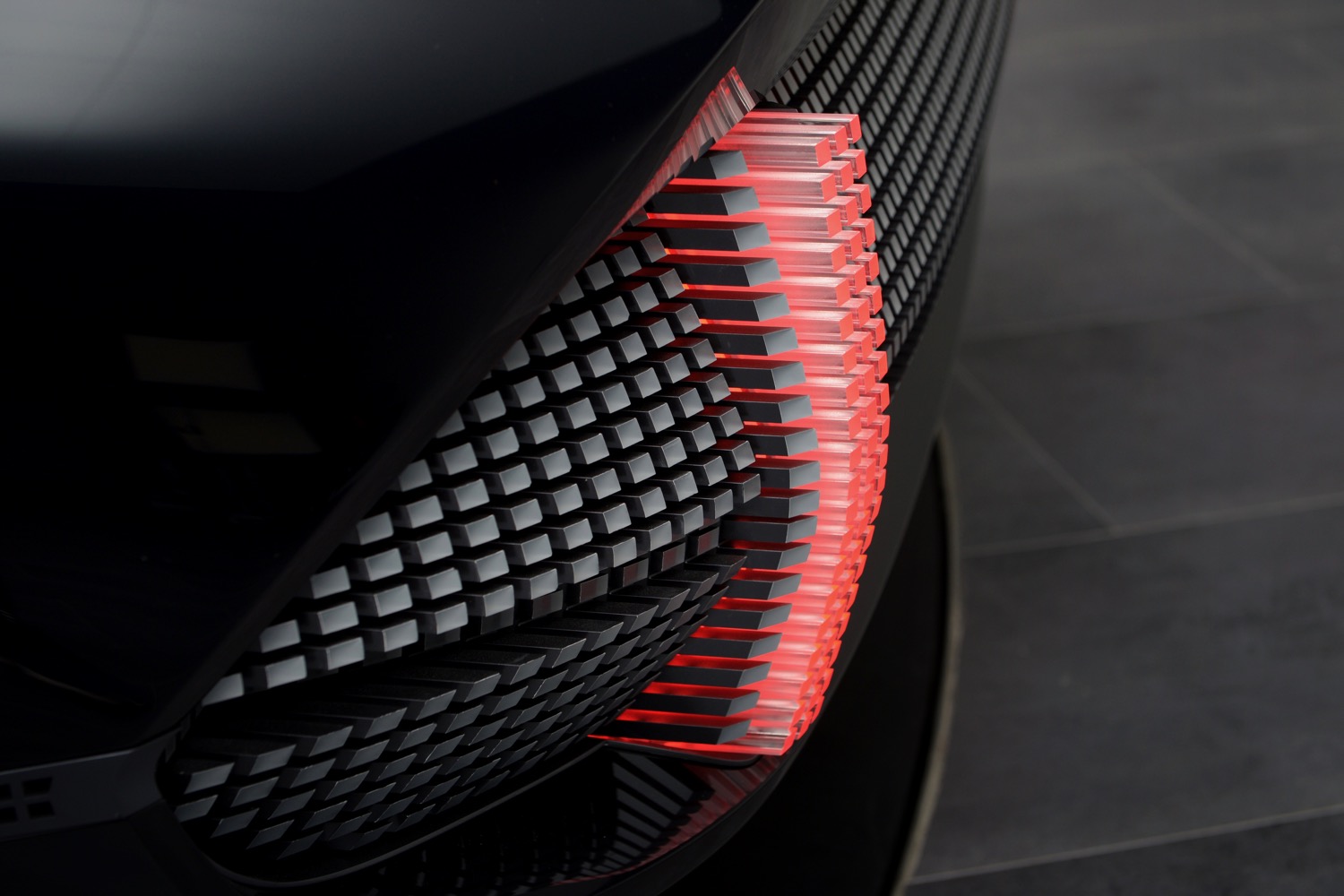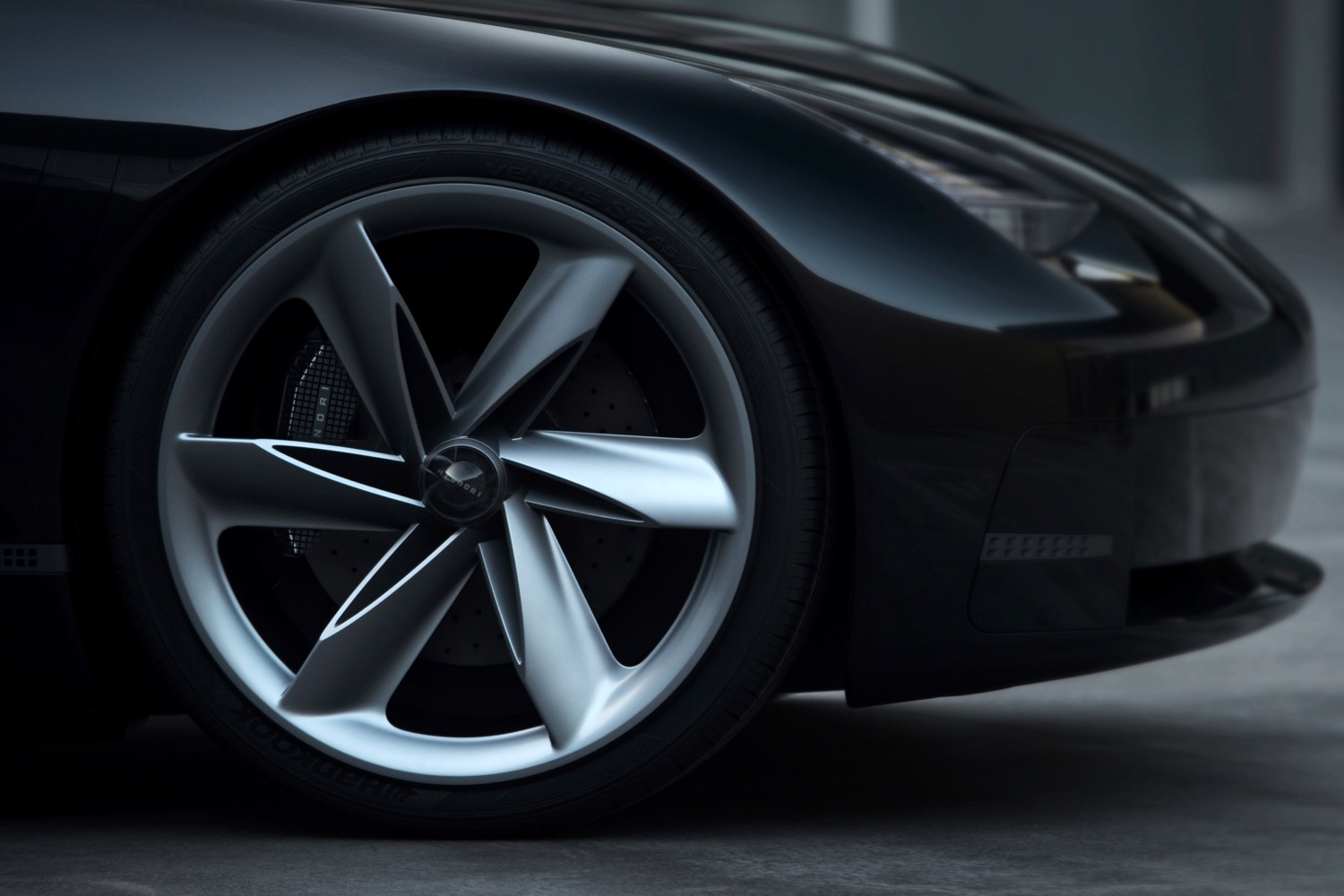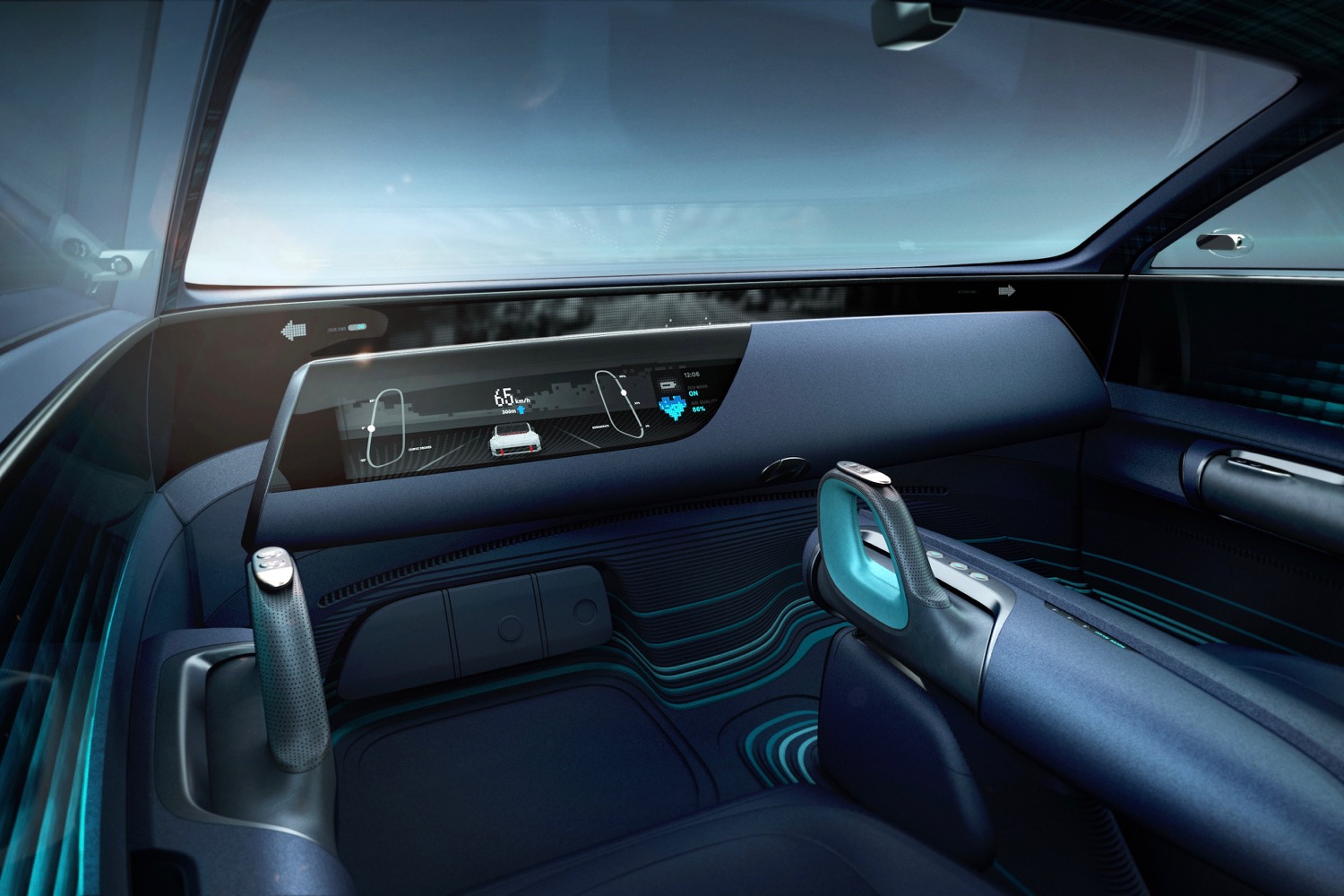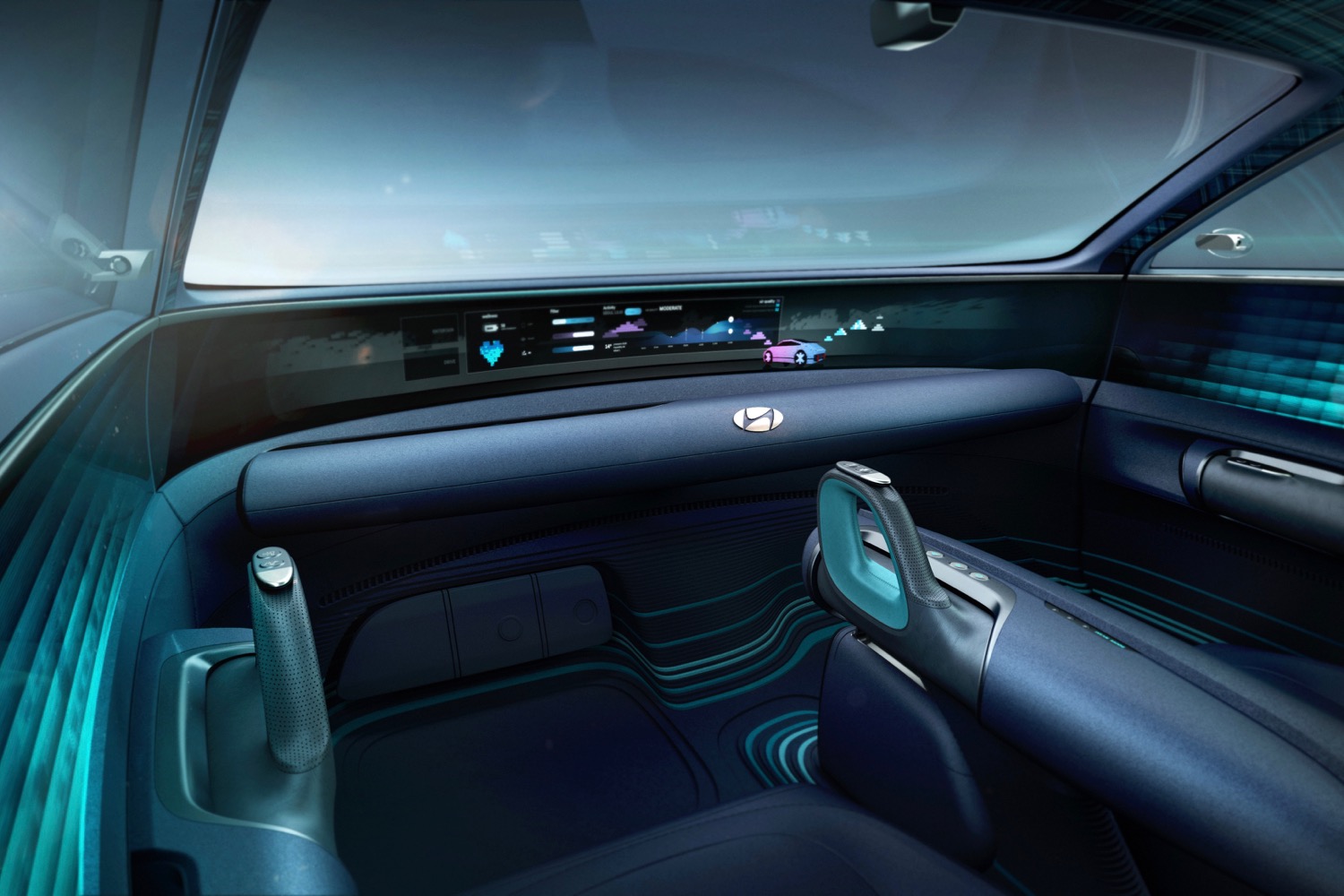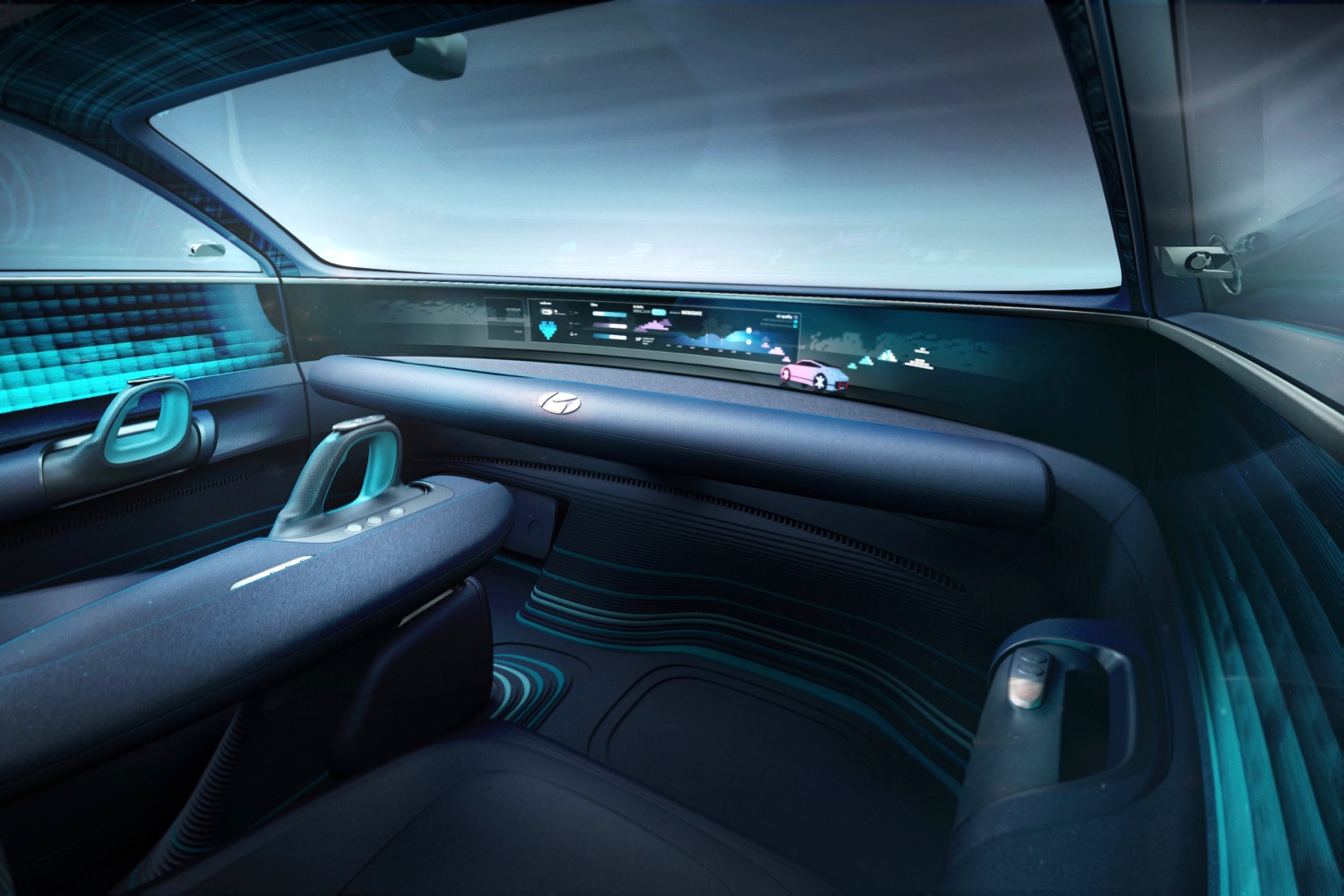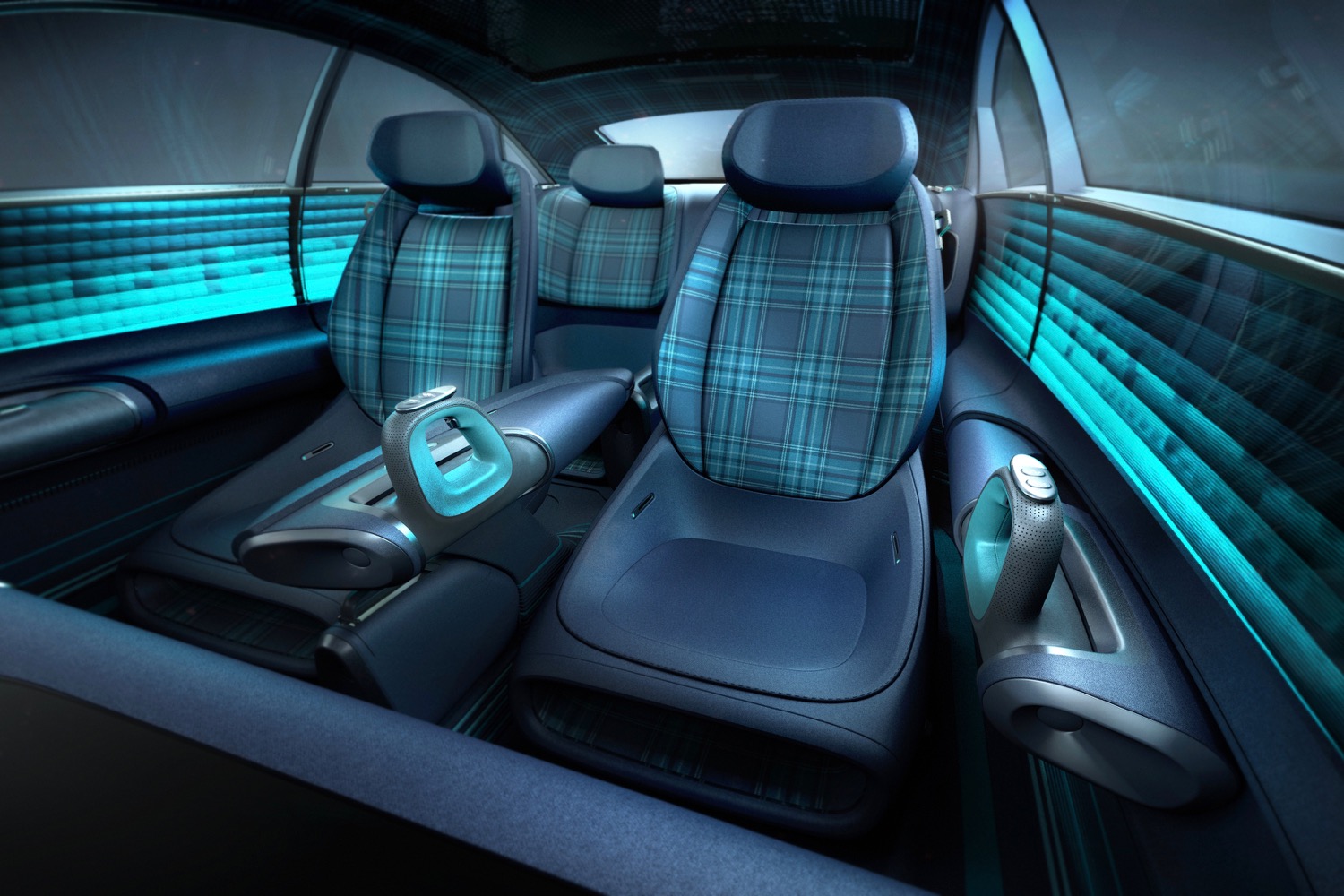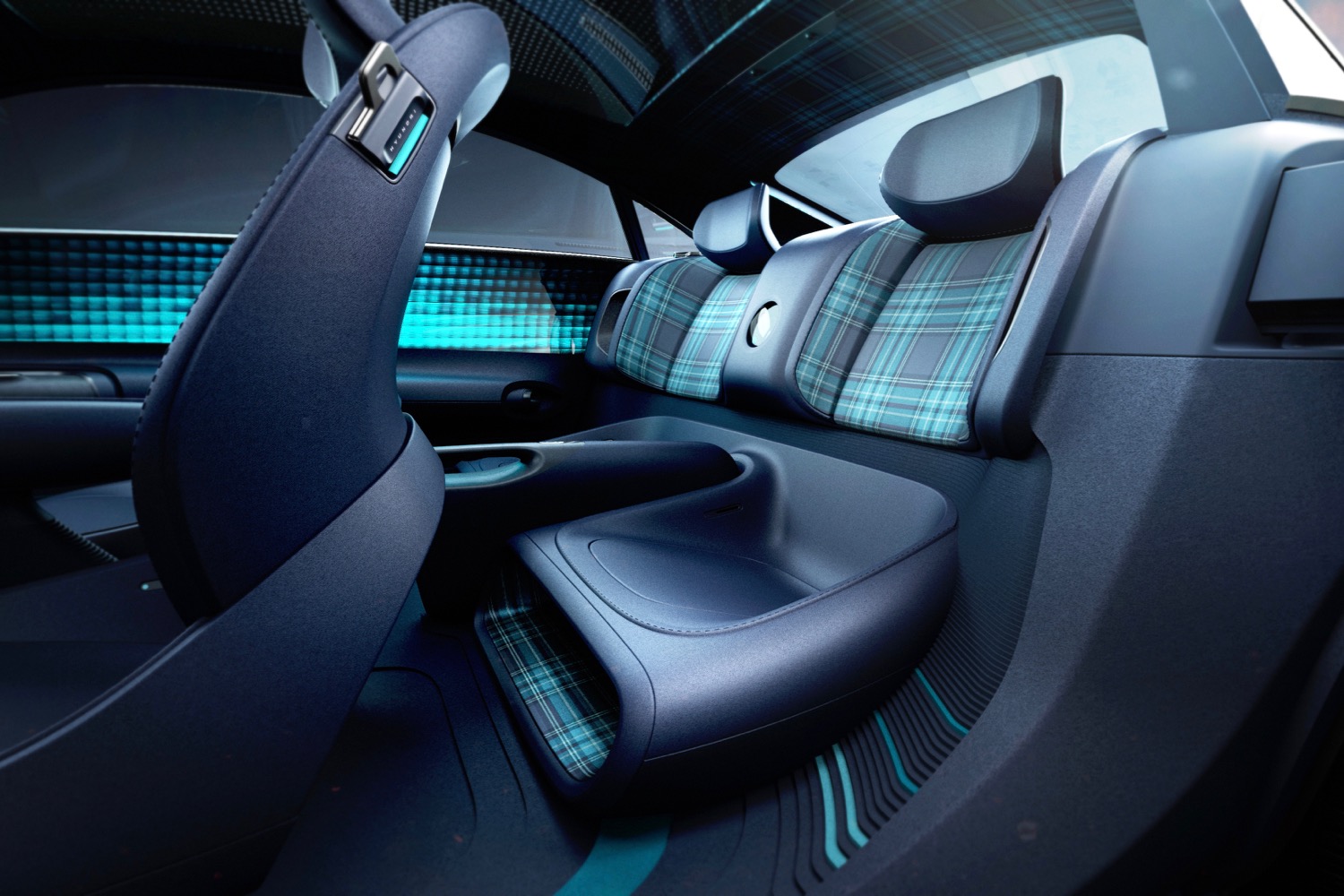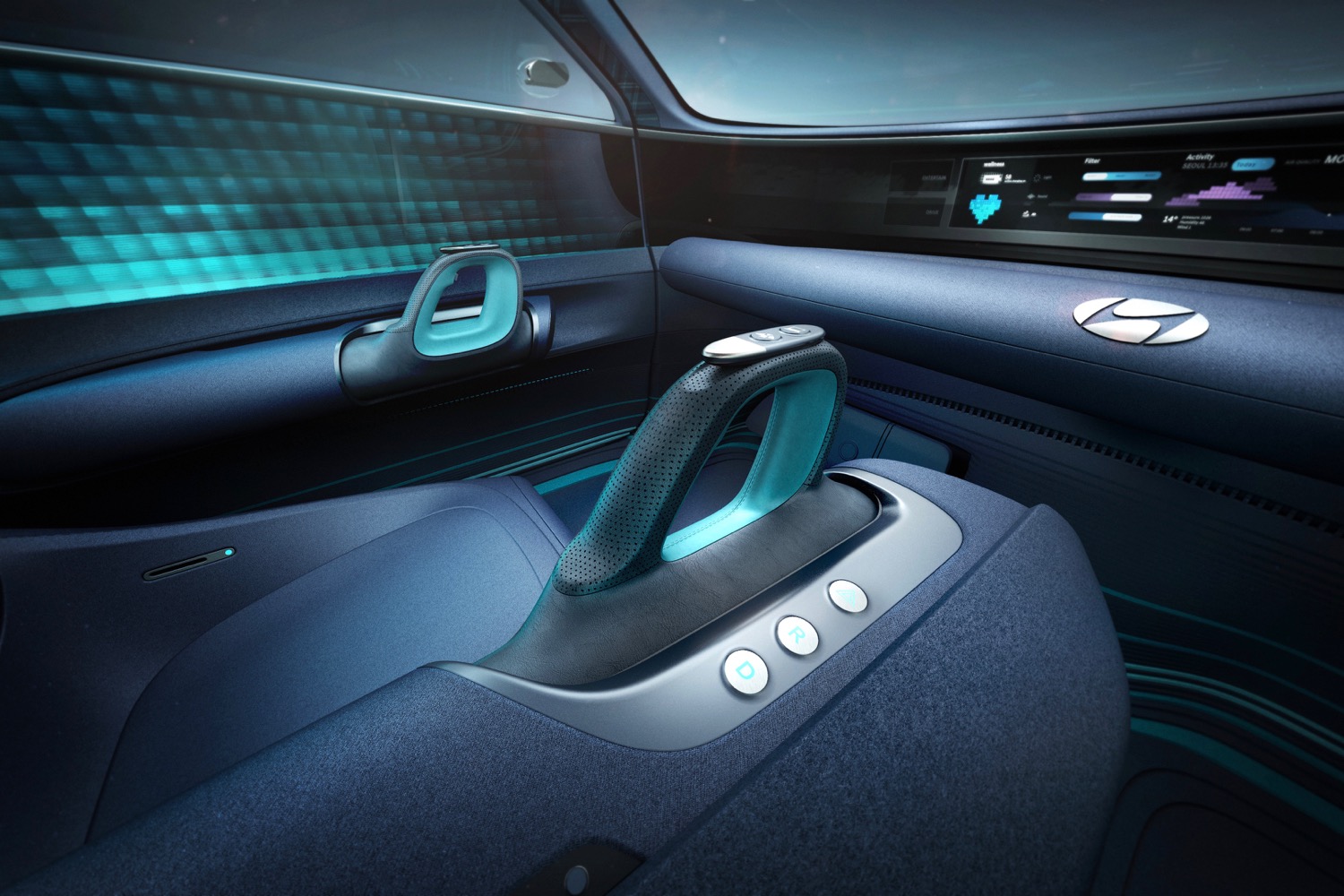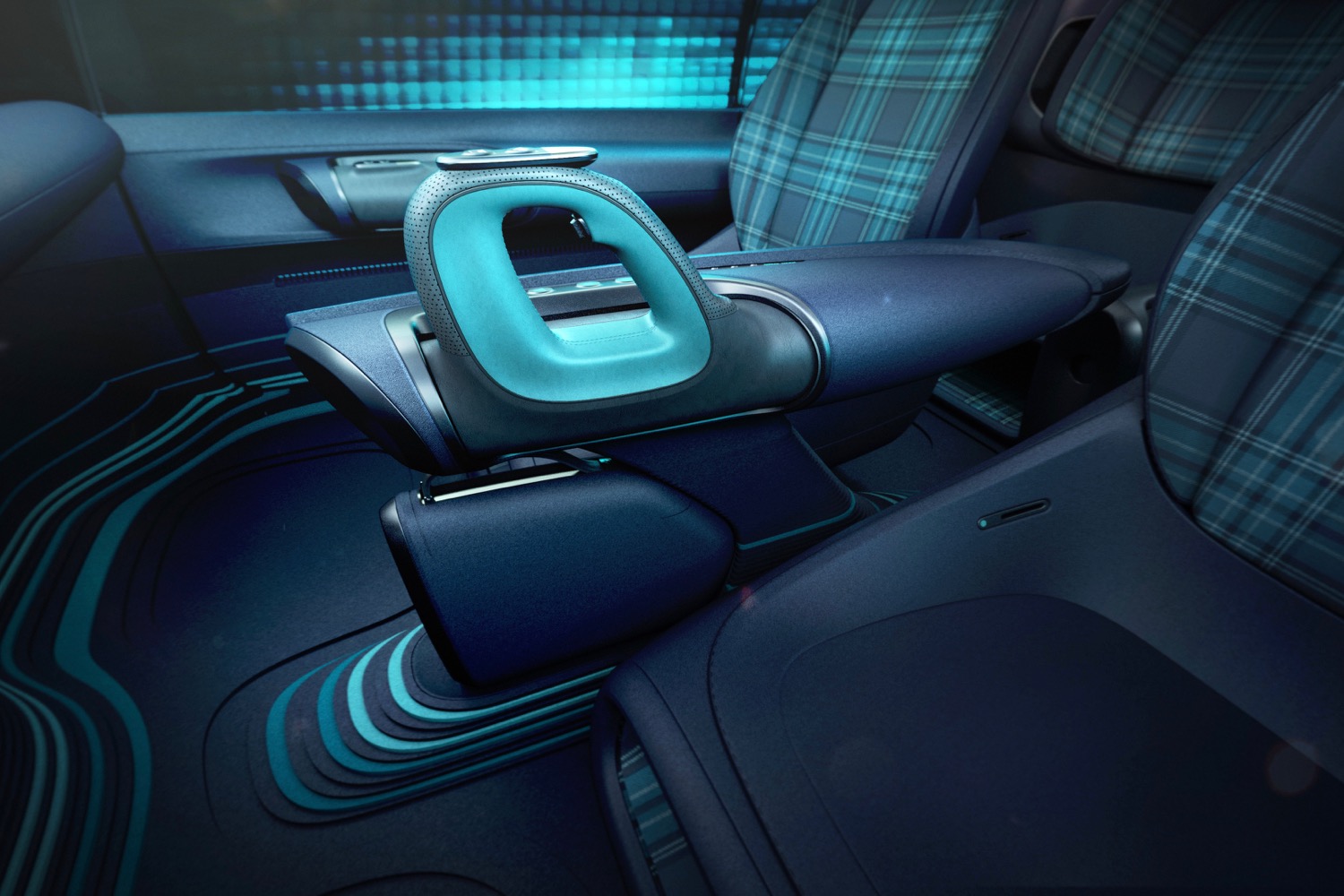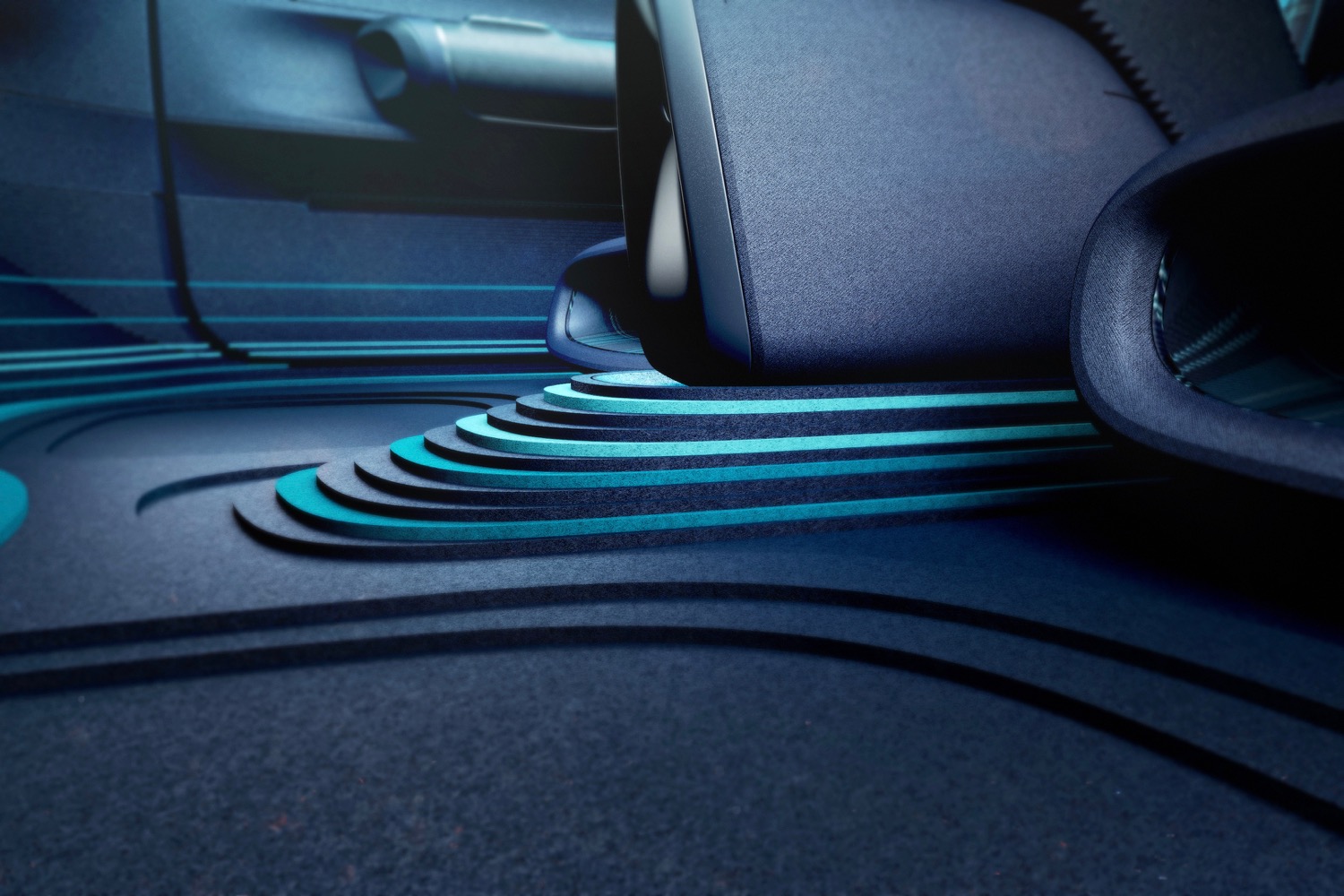Concept cars preview automakers’ future plans, whether it’s new tech, zero-emission powertrains, or a new design direction. So what better name for a concept car than Prophecy?
The Hyundai Prophecy concept highlights two technologies that are tipped to transform the auto industry — electric powertrains and autonomous driving. The tech is wrapped in a sleek, minimalist exterior Hyundai said will point the way forward for future production-car styling.
Hyundai said the exterior is an evolution of the “Sensuous Sportiness” design theme used on its current cars, but the Prophecy has much less exterior detailing, giving it a cleaner look. The rear spoiler is made from transparent acrylic to show off embedded cameras, part of the array of sensors that enable autonomous driving. Designers also gave the Prophecy the same “pixelated” lights as the Hyundai 45 concept, giving the car a slightly retro look. Those lights will be used on future production cars as well, Hyundai said.
As with the recent BMW Concept i4, Hyundai designs relied on the packaging efficiencies of an electric powertrain to provide a reasonable amount of interior space. Gasoline cars with streamlined exteriors like these normally sacrifice passenger space for style.
Hyundai also freed up interior space by eliminating the steering wheel and pedals. The Prophecy was designed for autonomous driving, so it doesn’t need manual controls. Yet Hyundai did include a pair of joysticks that can pivot left and right. This gives passengers some control over the car, according to Hyundai, although it’s unclear exactly how the system works. Hyundai noted that the joysticks take up less space than a steering wheel, but they’re also probably less effective for changing direction.
The Prophecy also features a “Relax” mode that reconfigures the interior for greater passenger comfort. With the car handling driving duties, the seats recline and the dashboard swivels to give passengers a better view of content on a massive central screen.
Reclining seats and joystick controls likely won’t make it to production cars anytime soon, but Hyundai is developing autonomous driving tech. The automaker didn’t release any specifications on the Prophecy’s electric powertrain, but Hyundai has embarked on the development of a dedicated EV platform in-house, and is working with startup Canoo on a second architecture for future electric cars.
